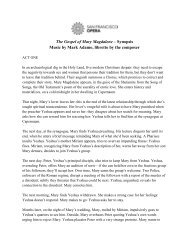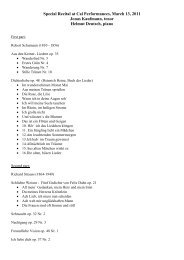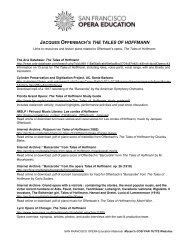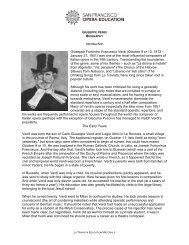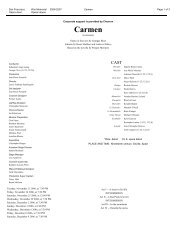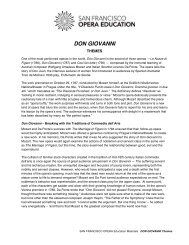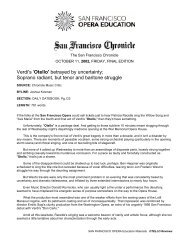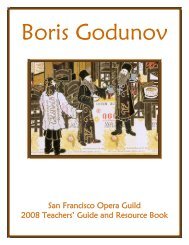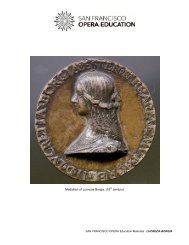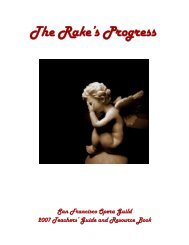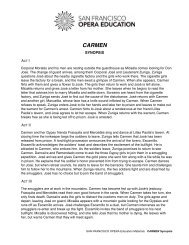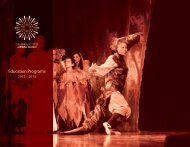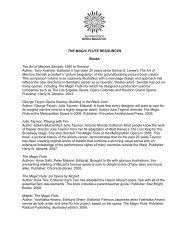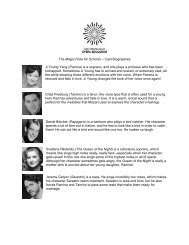Create successful ePaper yourself
Turn your PDF publications into a flip-book with our unique Google optimized e-Paper software.
<strong>Opera</strong> Glossary<br />
Accompaniment - An instrumental or vocal part designed to support or complement a principal<br />
voice, instrument, or group of voices or instruments. In an aria, the voice is the primary focus and<br />
the orchestra is the accompaniment.<br />
Acoustics - The science of sound. The qualities of sound in an enclosed space.<br />
Aria - An extended musical passage performed by one singer. It is used to express feelings or<br />
comment on the action and is accompanied by the orchestra. The action usually stops while an<br />
aria is sung.<br />
Ballet - A form of dance that tells a story.<br />
Banda - A small group of instrumentalists who play either on the stage or backstage, not in the pit.<br />
Bel Canto - Literally “beautiful singing,” bel canto passages are lyrical, and often very florid.<br />
Bravo - Literally “brave, courageous.” A form of applause when shouted by members of the<br />
audience at the end of an especially pleasing performance. Strictly speaking, bravo is for a single<br />
man, brava for a woman, and bravi for more than one performer.<br />
Cabaletta - The final section of an extended aria or duet, generally short and brilliant, to display the<br />
voice and rouse applause.<br />
Cadenza - An elaborate unaccompanied passage near the end of an aria designed to show off the<br />
voice. Originally used to close a number and improvised on the spot.<br />
Choreographer - The person who designs the steps of a dance.<br />
Choreography - A dance or the making of a dance.<br />
Chorus - A group of mixed voices, or the musical passage sung by such a group.<br />
Claque - A group of people hired to sit in the audience and either applaud enthusiastically to ensure<br />
success or whistle or boo to create a disaster. In past years, leading singers were sometimes<br />
blackmailed to pay a claque to insure they would not create a disturbance. Even now, one is<br />
sometimes used but rarely acknowledged.<br />
Coloratura - A kind of vocal music that requires the singer to execute a variety of technically<br />
brilliant and difficult passages. These may be fast runs (scales), trills (rapid alternation of two<br />
notes), or other devices that embellish the vocal line.<br />
Composer - The person who writes the music of an opera or other musical work.<br />
Comprimario - A secondary role in an opera.<br />
Concertmaster - The “first chair” violinist who plays occasional solos and is responsible for<br />
coordinating all of the stringed instruments. The concertmaster decides on the bowing so that all of<br />
the bows move in unison.<br />
Conductor - The person who leads the orchestra and singers.<br />
36



